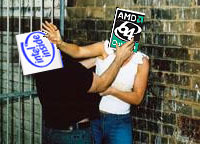 European Commission heavies made an unscheduled visit to Intel offices in Europe today as the chip maker’s offices were raided in connection with suspected anti-trust violations.
European Commission heavies made an unscheduled visit to Intel offices in Europe today as the chip maker’s offices were raided in connection with suspected anti-trust violations.
The European antitrust regulators started booting in doors two weeks after rival U.S. chip-maker Advanced Micro Devices filed a lawsuit claiming Intel used its market dominance to coerce computer makers away from using their AMD chips.
European Commission spokesman Jonathan Todd explained, ‘Directorate General Competition officials, accompanied by officials from national competition authorities, are conducting inspections of several premises of Intel in Europe as well as a number of IT firms manufacturing or selling computers.”
A statement from the European Union head office added, “Investigations are being carried out in the framework of an ongoing competition case.”
Intel spokesman Chuck Malloy confirmed that the raids took place, adding that his company was cooperating fully while insisting that it was “all a stitch up and society’s to blame” (or words to that effect).
The EU has been investigating claims about Intel using unfair business practices to persuade clients to buy its chips to the exclusion of rivals’ chips for some time.
An initial investigation was demanded by Advanced Micro Devices several years ago, but in 2002 EU antitrust regulators reached a preliminary conclusion that there was insufficient evidence to bring any charges.
AMD kept up the pressure, nagging regulators into looking into Intel’s business practices again, with the commission sending out formal notices to France, the Netherlands, Finland, Sweden, Italy and Germany last year.
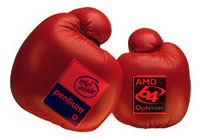 These requested information on government procurement tenders for computers containing requirements that they specify Intel chips or request a chip speed exclusive to Intel.
These requested information on government procurement tenders for computers containing requirements that they specify Intel chips or request a chip speed exclusive to Intel.
Late last month, AMD sued Intel for billions of dollars in a Delaware federal court, insisting that Intel bullied 38 computer companies into buying Intel chips.
Intel told them to stick their allegations when their chips don’t shine, suggesting that they were just whining away like a big girl because of their secondary market position (we’re paraphrasing slightly here).
Much as we enjoy corporate fisticuffs, we reckon that the issue would be best resolved without assisting zillions of smarmy lawyers to get even richer.
We reckon a playground fight would be far more fun.
Fight Fight!
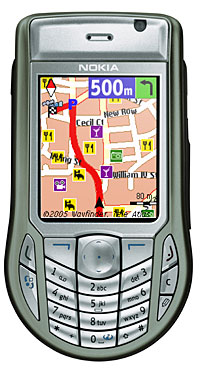 Nokia and Wayfinder Systems have proudly proclaimed the availability of the Nokia 6630 Navigation Pack, a compact smartphone-based navigation package for folks on the move.
Nokia and Wayfinder Systems have proudly proclaimed the availability of the Nokia 6630 Navigation Pack, a compact smartphone-based navigation package for folks on the move.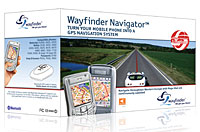 Never one to knowingly undersell his product, Jonas Sellergren, VP Product Management, Wayfinder Systems proclaimed “the Wayfinder Navigator application on the Nokia 6630 brings the ultimate navigation solution to the consumer.”
Never one to knowingly undersell his product, Jonas Sellergren, VP Product Management, Wayfinder Systems proclaimed “the Wayfinder Navigator application on the Nokia 6630 brings the ultimate navigation solution to the consumer.”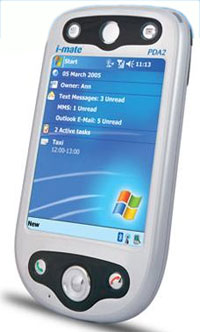 Dubai-based Microsoft Windows mobile specialists i-mate have added the HTC-manufactured i-mate PDA2 to their popular range of Pocket PC phones.
Dubai-based Microsoft Windows mobile specialists i-mate have added the HTC-manufactured i-mate PDA2 to their popular range of Pocket PC phones.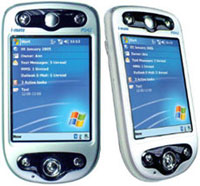 Memory can be expanded through a SD/MMC slot, also compatible with SDIO peripherals.
Memory can be expanded through a SD/MMC slot, also compatible with SDIO peripherals.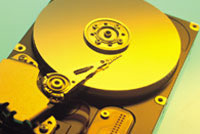 Samsung announces a prototype hard disk drive that includes flash memory, promising longer battery life and less hard disk woes for laptop users.
Samsung announces a prototype hard disk drive that includes flash memory, promising longer battery life and less hard disk woes for laptop users.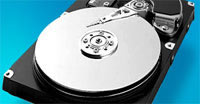 The hard disk would only spin up when the flash memory’s “write buffer” was full, reducing the time and power needed to keep the drive’s rotating media spinning.
The hard disk would only spin up when the flash memory’s “write buffer” was full, reducing the time and power needed to keep the drive’s rotating media spinning.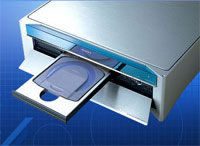 After years of throwing pans at each other, Sony and Toshiba are set to kiss and make up and develop a universal standard for next-generation DVDs, according to a report in the Nihon Keizai Shimbun business daily.
After years of throwing pans at each other, Sony and Toshiba are set to kiss and make up and develop a universal standard for next-generation DVDs, according to a report in the Nihon Keizai Shimbun business daily. Two competing formats developed out of this technology, with Sony and Matsushita (Panasonic), introducing the Blu-ray standard in February 2002, with Toshiba and NEC Corp. following with the HD DVD standard.
Two competing formats developed out of this technology, with Sony and Matsushita (Panasonic), introducing the Blu-ray standard in February 2002, with Toshiba and NEC Corp. following with the HD DVD standard.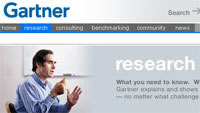 Worldwide shipments of PCs rose by 10.3 percent in the first quarter, with global shipments increasing to 50.4 million units, up from the 45.7 million PCs shifted during the same period a year ago.
Worldwide shipments of PCs rose by 10.3 percent in the first quarter, with global shipments increasing to 50.4 million units, up from the 45.7 million PCs shifted during the same period a year ago.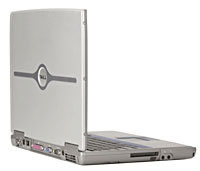 The report notes that lower vendor prices and the strong Euro to the dollar exchange rate helped open up small business wallets over Europe.
The report notes that lower vendor prices and the strong Euro to the dollar exchange rate helped open up small business wallets over Europe.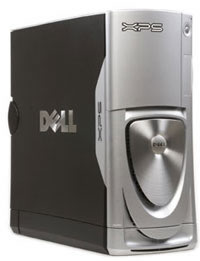 In the US market – the biggest in the world – Apple shimmied up to fifth position, elbowing Toshiba down a place.
In the US market – the biggest in the world – Apple shimmied up to fifth position, elbowing Toshiba down a place.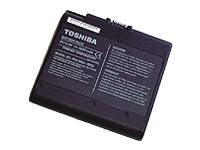 Toshiba has developed a super-fast Lithium-Ion battery capable of being charged to 80 per cent of its full capacity in under 60 seconds. According to the company, a full charge takes just “a few more minutes”.
Toshiba has developed a super-fast Lithium-Ion battery capable of being charged to 80 per cent of its full capacity in under 60 seconds. According to the company, a full charge takes just “a few more minutes”.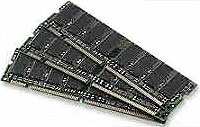 The 512Mb XDR (extreme data rate) DRAM chips run at a turbo-charged speed of 4.8GHz, which is about 12 times faster than that of the memory typically found in today’s desktop PCs.
The 512Mb XDR (extreme data rate) DRAM chips run at a turbo-charged speed of 4.8GHz, which is about 12 times faster than that of the memory typically found in today’s desktop PCs.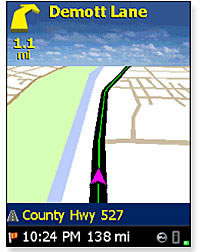 Motorola is to bundle GPS navigation software and hardware with the European versions of its A780 and MPx220 smart phones.
Motorola is to bundle GPS navigation software and hardware with the European versions of its A780 and MPx220 smart phones.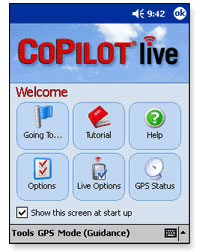 GPS navigation has proved a bit of a hit in Europe, with sales bolstering up an otherwise declining PDA market.
GPS navigation has proved a bit of a hit in Europe, with sales bolstering up an otherwise declining PDA market.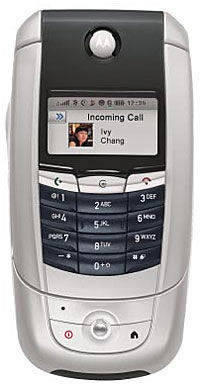 Both handsets use Bluetooth to communicate with a separate GPS receiver.
Both handsets use Bluetooth to communicate with a separate GPS receiver. “The new IMAGEON processors from ATI combine advanced audio and video processing capabilities to turn mobile phones into mobile entertainment centers.”
“The new IMAGEON processors from ATI combine advanced audio and video processing capabilities to turn mobile phones into mobile entertainment centers.” Announced at the CeBIT tradeshow, Pretec have introduced a new memory card format for smartphones, called the C-Flash cards.
Announced at the CeBIT tradeshow, Pretec have introduced a new memory card format for smartphones, called the C-Flash cards.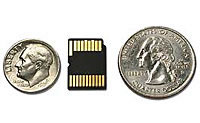 This format will also have support for MU-Card, a specification from China lead by Mu-Card Alliance. C-Flash has been adopted as the next small form factor version of MU-Card (called MU-Flash).
This format will also have support for MU-Card, a specification from China lead by Mu-Card Alliance. C-Flash has been adopted as the next small form factor version of MU-Card (called MU-Flash).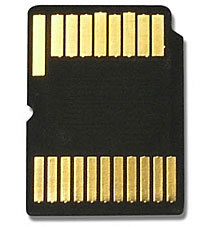 C-Flash has also been submitted to the MMC Association to be considered as the next small form factor standard of MMC.
C-Flash has also been submitted to the MMC Association to be considered as the next small form factor standard of MMC.